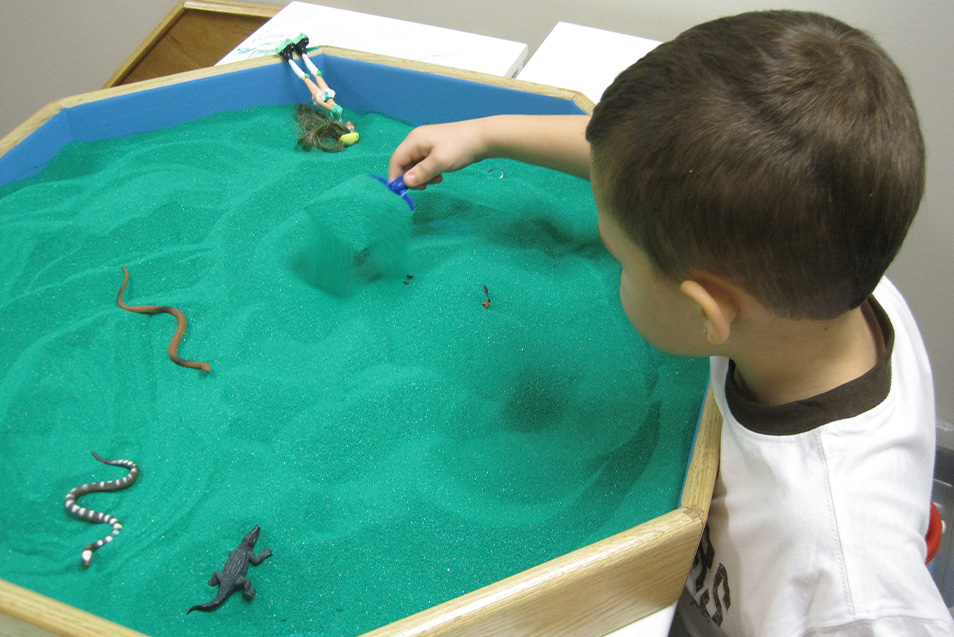For kids facing abuse, neglect and violence in their homes, the pandemic not only raised the demand for services, but each child and caregiver now needs more services for a longer period of time to help them recover. With a resurgence in the number of children needing help, the anxiety, uncertainty, and isolation reveal a “shadow pandemic” that has compounded the effects of sexual violence.
Funding sources have also been pressed, resulting in gaps not expected prior to the pandemic. Local organizations are now looking to the Children’s Services Fund — to not only replace other funding lost, but to help them gain more ground.
The CSF’s existence is critical to the continuation of services — services that are essential to the health and wellbeing of our kids wrestling with the effects of domestic and sexual violence.
The prevention and counseling programs at the Metropolitan Organization to Counter Sexual Assault (MOCSA) are no exception. Josh King, Director of Grant Development, praises his experience with the Children’s Services Fund. “Fundraising in general can be challenging and unpredictable. The way the CSF administers funds is very impressive. It’s clear from board meetings and our day-to-day interactions that they know what they’re doing, and they’re doing the right thing. The CSF is the funding process gone right.”
He also noted, “Without CSF funding, we couldn’t have launched our service site in eastern Jackson County,” which would compromise not only MOCSA’s programs and those of other partner organizations, but the health and wellbeing of a large number of local children and teens.
Child Sexual Abuse in Jackson County
In all of Missouri, Jackson County is an “outlier,” having:
- The highest number of reported incidents of child abuse, accounting for 9,176 children in 2021. That’s nearly another third higher than St. Louis County.
- The highest number of substantiated child sexual abuse cases, totalling 151, or 10% of all Missouri cases in 2021.
Funding from the CSF has enabled MOCSA to invest in Jackson County kids in two ways. By educating middle and high school students, their prevention programs bring awareness to what violence is and empower kids to respond in healthy, helpful ways. For those who’ve disclosed inappropriate behaviors or sexual violence encounters, MOCSA provides evidenced-based counseling for children ages 5 to 19, as well as their caregivers and siblings.
On average, MOCSA’s victim-service programs (counseling, advocacy, 24-hour crisis line) serve 4,000-5,000 sexual violence victims every year. Alternatively, the therapists alone see about 1,000 per year. All services are provided free of charge. Their potential to curb those numbers lies in their prevention programs throughout the community and in schools, where they reach 50,000-60,000 individuals annually.
In-School Prevention Education
Brandy Williams is the Director of Education at MOCSA. She recalls voters approving the CSF in 2016, which enabled her team to start the Green Dot program for middle schoolers in 2017. Today, they’re in 5 Jackson County schools (3 of which are funded by the CSF), including Osage Trail in eastern Jackson County, and the program extends into high school through Youth Led Prevention.
Green Dot: A Middle School Violence Prevention Program
MOCSA uses the Green Dot program to help children understand the principle of choosing to hurt or help others. Through training sessions, student leaders, staff, counselors, parents and middle schoolers learn everyone has a part to play in keeping their school safe and free from violence. They also equip them with simple things every student can do to help, such as addressing a teacher, consoling those who’ve been hurt, or giving them space.
Through surveys before and after programming, MOCSA measures progress. They see it first hand in the hallways, how students address one another and reach out for help, in the growth of relationships with school partners, and in the openness and authenticity of staff. What they don’t see is enough staff to teach 2-3 days in every school to reach everyone.
State-mandated School Programming
There is now a higher demand for educational violence prevention presentations in schools. In 2020, Missouri passed a law requiring state-mandated school programming, including age appropriate sexual abuse education, for students in grades 6-12. With funds from the CSF, MOCSA was able to launch and grow their programs, but because the demand continues to rise, they still need more dollars — to both address the issues and create jobs for those managing and teaching the programs. Josh King pointed out, “Every dollar spent in prevention saves five dollars in treatment.” That’s just how important prevention services are.
Counseling for Sexual Violence Recovery
Sexual violence carries lots of symptoms, from nightmares and trouble sleeping to hopelessness, depression or even regression in previously addressed behavioral issues. Victims aren’t the only ones challenged. Caregivers don’t know how to handle what’s happened to their loved ones.
As Director of Counseling, Hanni Woelk oversees the team of expert therapists at MOCSA. They’ve seen 120 youth in the past quarter. In 2021, 169 students disclosed incidents of sexual violence during or after a MOCSA presentation. (An estimated half of those were in Jackson County alone.)
Whether they come through the 24-hour crisis hotline, disclosures made during prevention programs, or concerned caregivers, their Sexual Violence Counseling program assesses their needs and provides Trauma-Focused Cognitive Behavioral Therapy in a number of evidenced-based methods. Their eastern Jackson County facility made a big difference in the impact of their treatment. They’re able to house 3-4 therapists, supervisors, 2 simultaneous groups and a play therapy room. Another big win is offering an 8-week group to support the healing process for survivors and caregivers.
When asked what residents of Jackson County need to know about the CSF, Hanni points to the launch and expansion of their eastern Jackson County outreach facility. “Just by word of mouth, our capacity was full. More people need MOCSA.”
“And MOCSA needs the Children’s Services fund,” Josh finished.
To learn more about the partner organizations the CSF funds and why it’s important to our community to continue funding mental health services for our children, visit our website and follow us on social media.
Resources:

